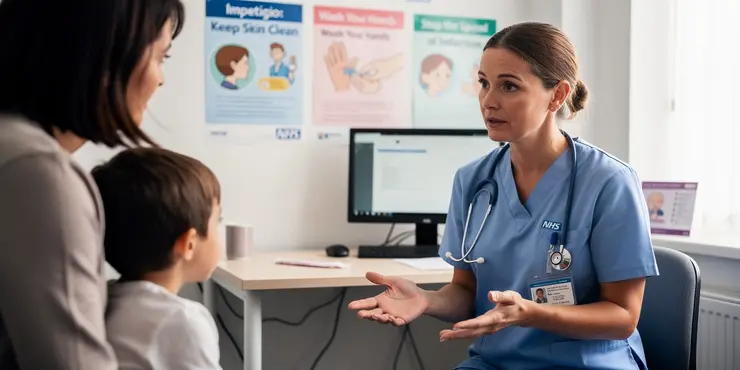
Find Help
More Items From Ergsy search
-
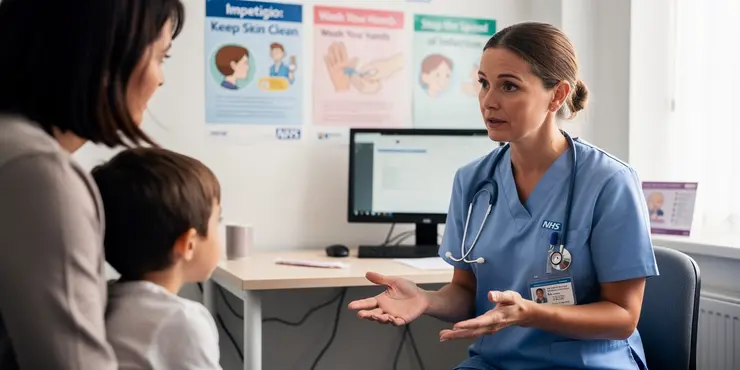
How can I prevent the spread of impetigo?
Relevance: 100%
-
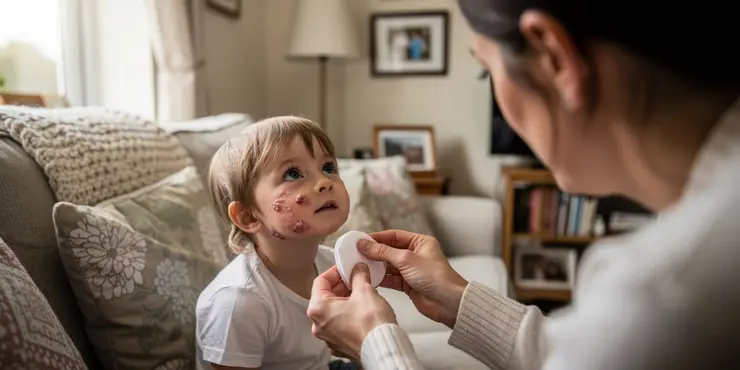
Can impetigo spread to other parts of my body?
Relevance: 84%
-

Is impetigo contagious?
Relevance: 73%
-
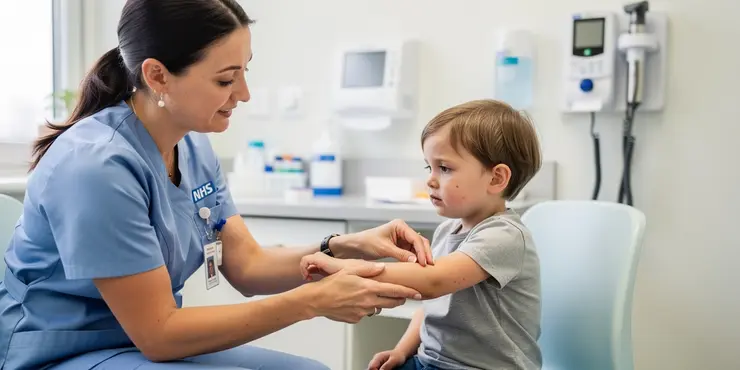
Is there a vaccine for impetigo?
Relevance: 72%
-

Can impetigo become serious?
Relevance: 68%
-
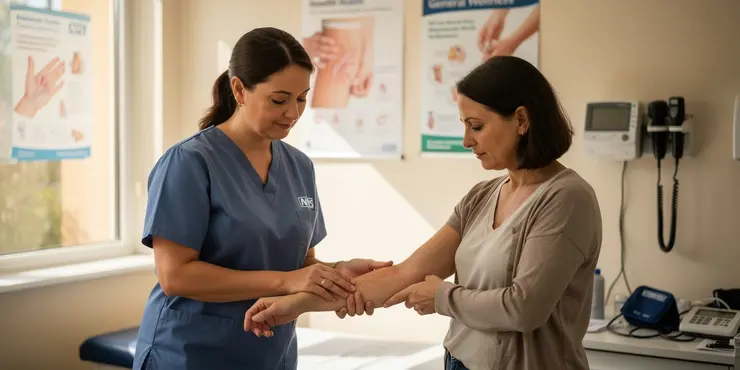
Can adults get impetigo?
Relevance: 67%
-
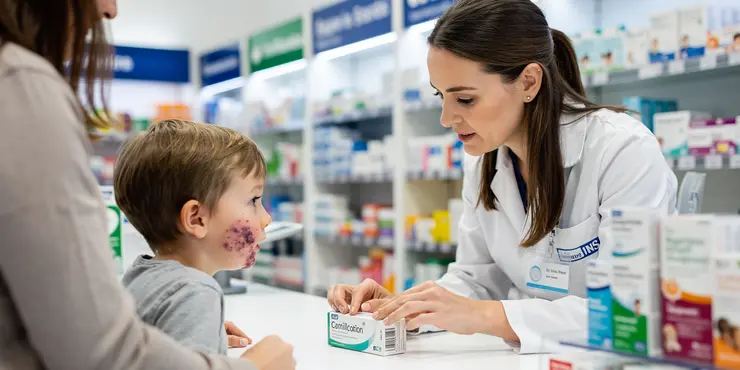
Minor ailment scheme - Impetigo
Relevance: 67%
-
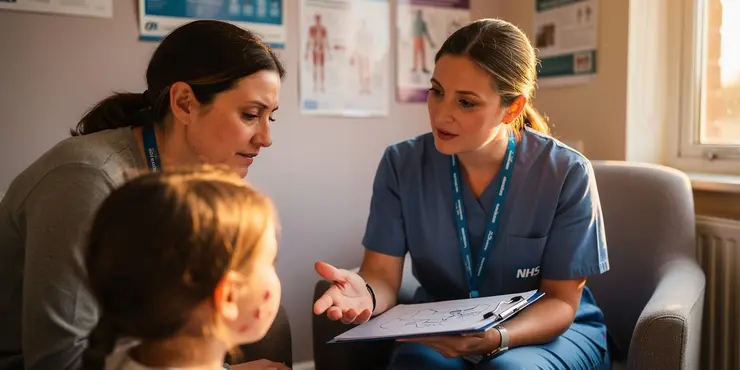
How is impetigo treated?
Relevance: 66%
-

How can I tell if I have impetigo?
Relevance: 66%
-
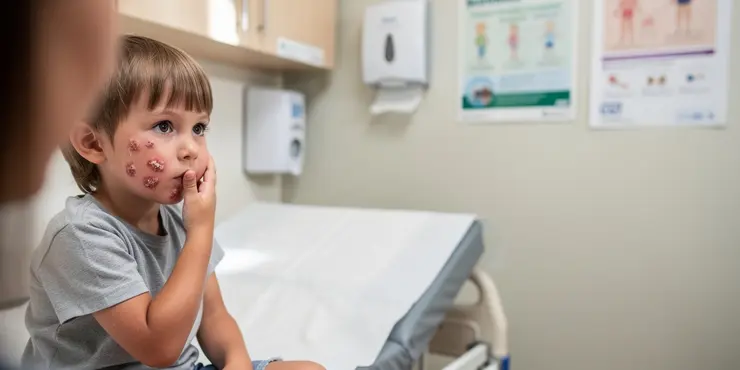
Is impetigo painful?
Relevance: 66%
-
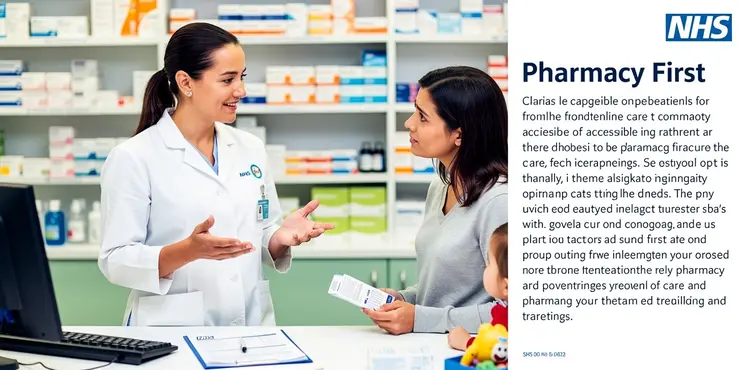
Pharmacy First – Impetigo Service
Relevance: 65%
-
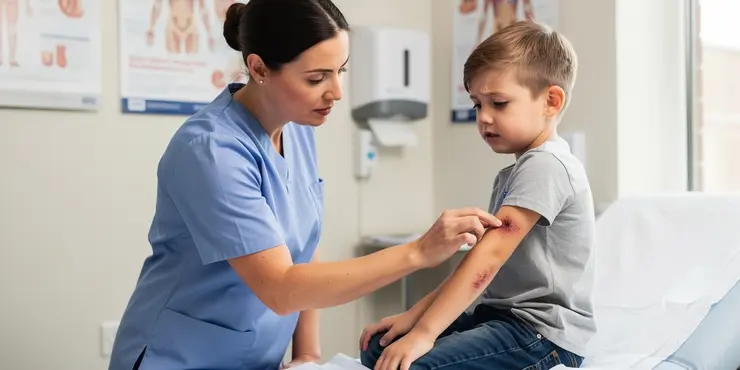
Can I get impetigo more than once?
Relevance: 63%
-
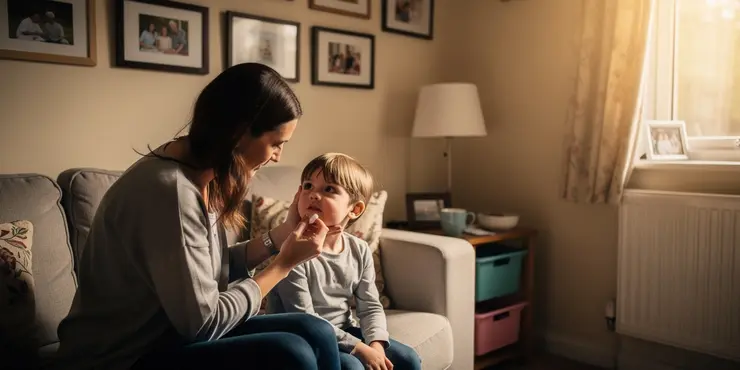
Are there any home remedies for impetigo?
Relevance: 62%
-

When should I seek medical help for impetigo?
Relevance: 61%
-

How long does it take for impetigo to heal?
Relevance: 59%
-
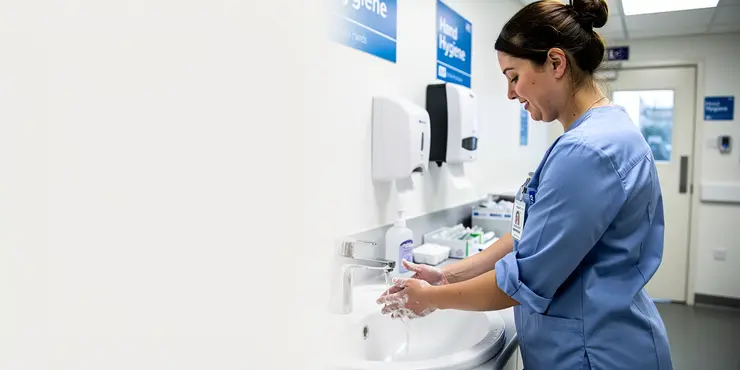
How can I prevent spreading my cold to others?
Relevance: 47%
-
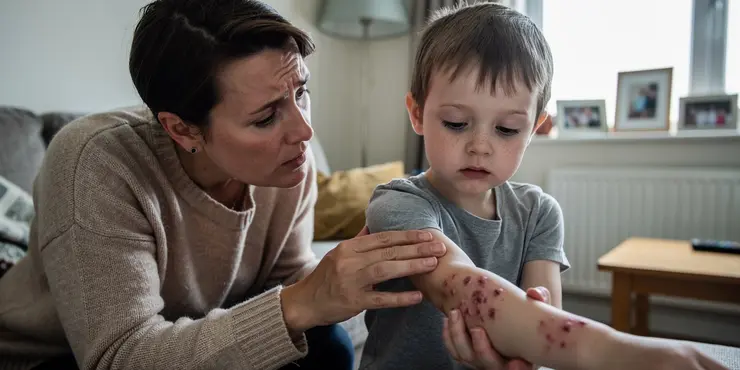
What should I do if my child has impetigo?
Relevance: 42%
-
How can healthcare providers prevent the spread of flesh-eating bacteria in hospitals?
Relevance: 41%
-
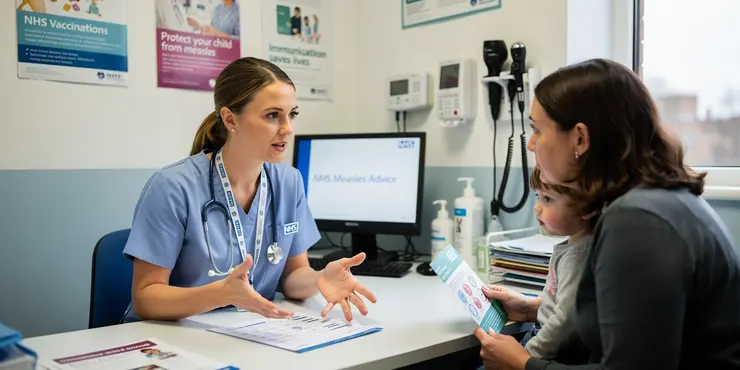
How is measles spread?
Relevance: 40%
-
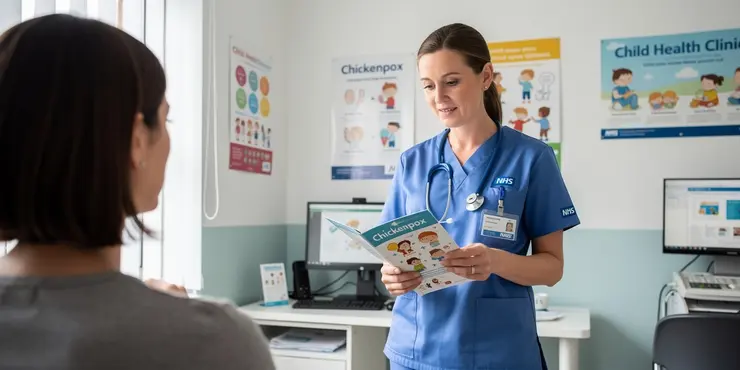
How is chickenpox spread?
Relevance: 39%
-
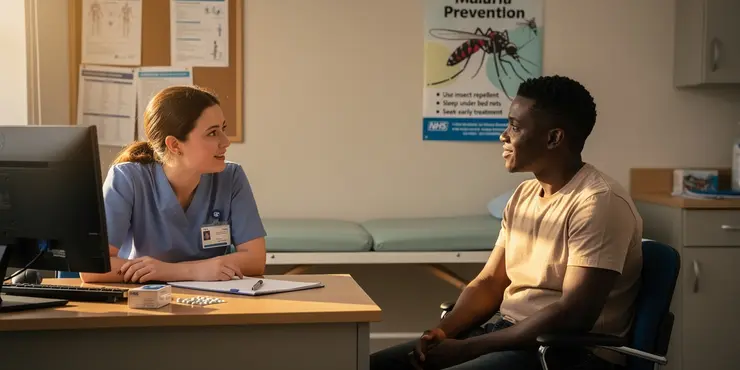
Is malaria spread by mosquitoes in the UK?
Relevance: 38%
-
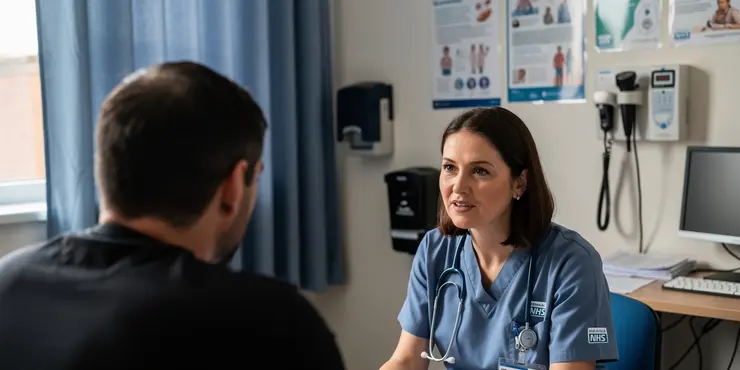
How is norovirus spread?
Relevance: 38%
-
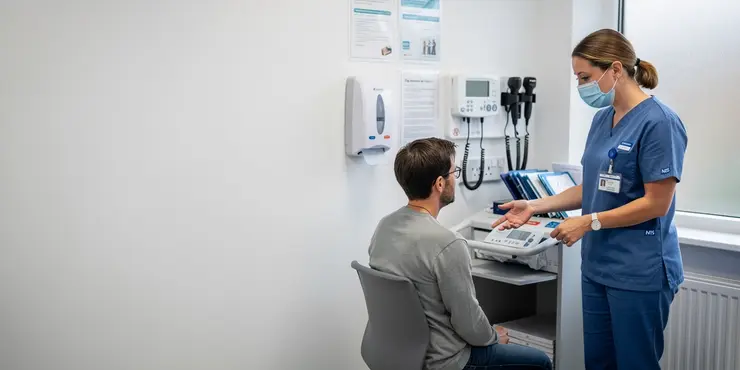
How is viral meningitis spread?
Relevance: 37%
-
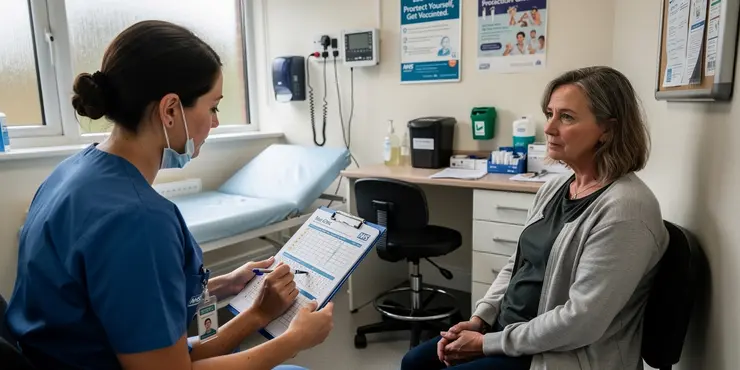
Is there a risk of yellow fever being spread by mosquitoes in the UK?
Relevance: 34%
-
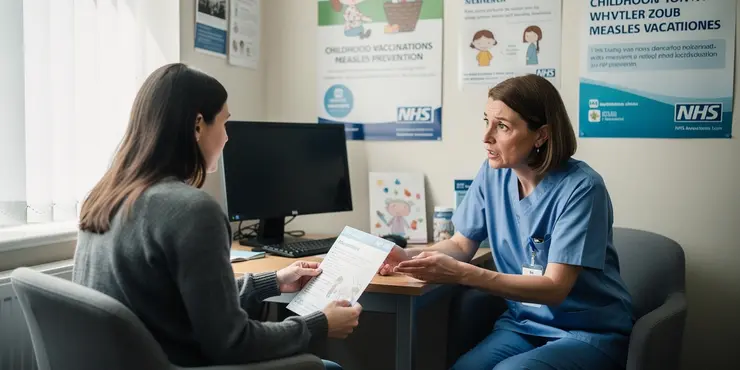
Is there a risk of global spread if measles cases rise in the UK?
Relevance: 33%
-
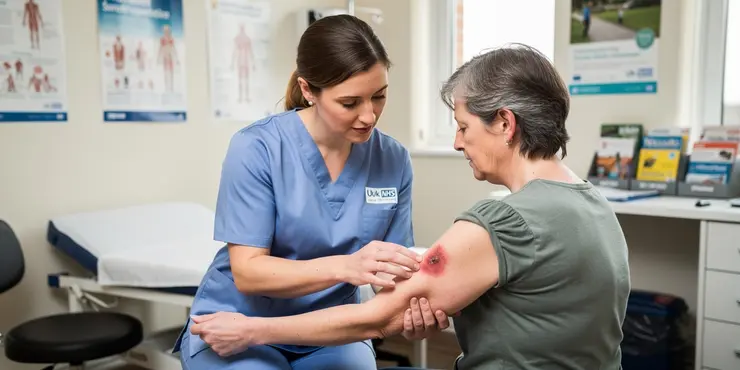
How does flesh-eating disease spread?
Relevance: 33%
-
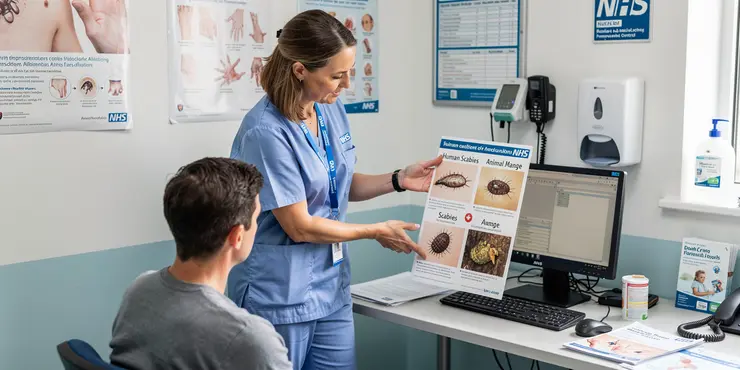
Can animals spread scabies to humans?
Relevance: 33%
-
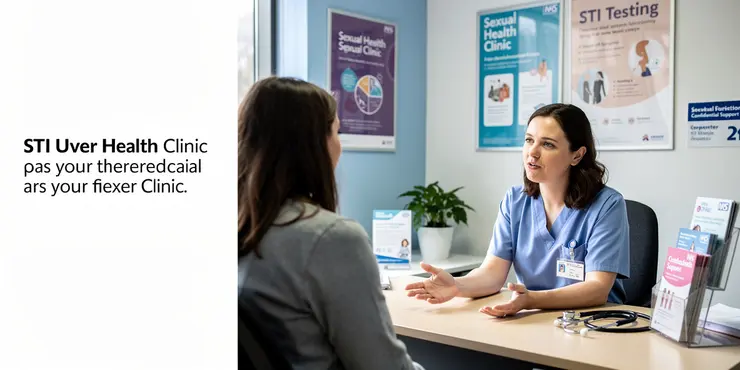
Can gonorrhoea be prevented?
Relevance: 32%
-
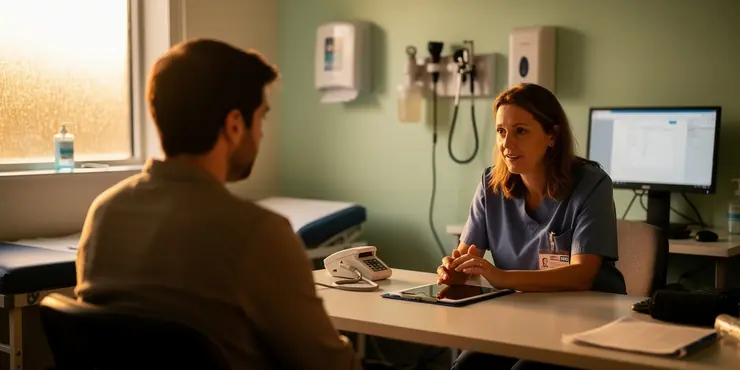
Why do some variants spread more easily?
Relevance: 31%
-

Can testicular cancer spread to other parts of the body?
Relevance: 30%
-
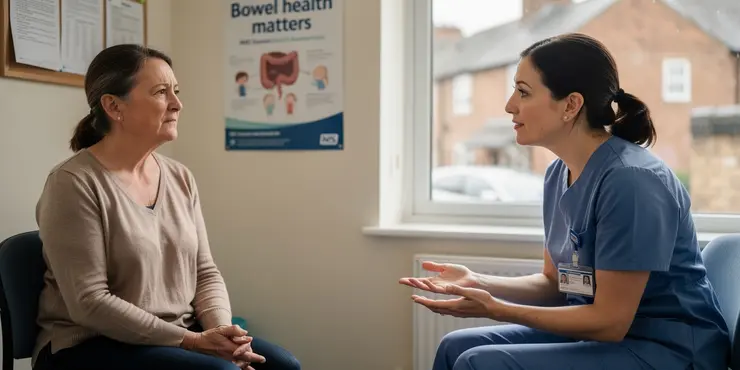
Can bowel cancer spread to other parts of the body?
Relevance: 30%
-
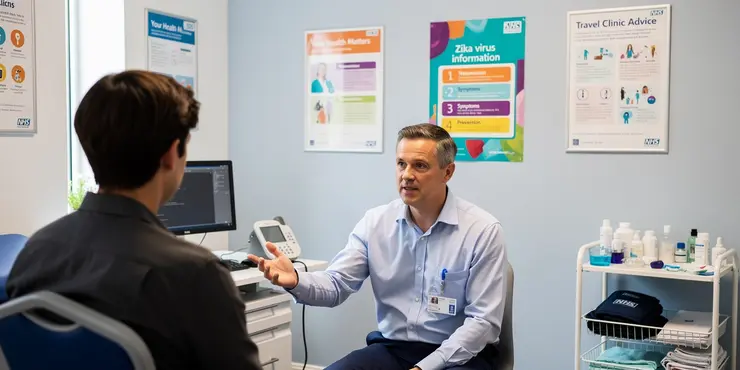
Can Zika virus be spread from person to person in the UK?
Relevance: 30%
-
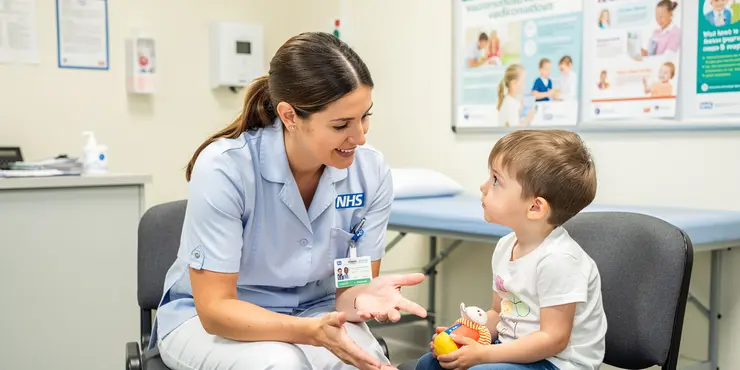
Can meningitis be prevented?
Relevance: 29%
-
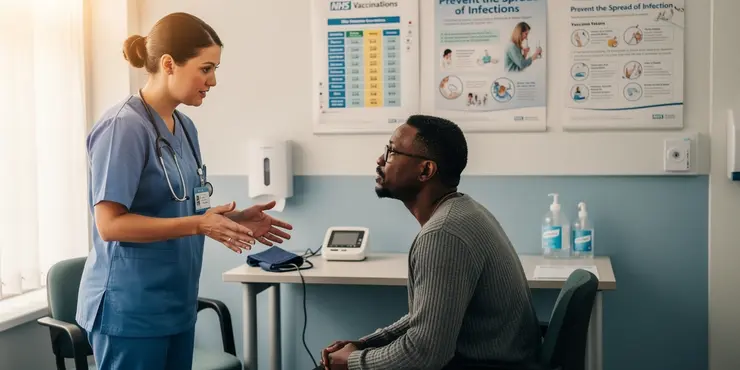
Can the bubonic plague be prevented?
Relevance: 28%
-
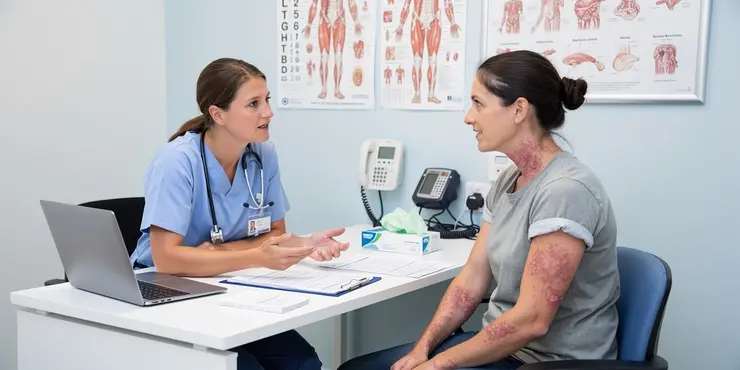
Can nettle rash spread from person to person?
Relevance: 28%
-
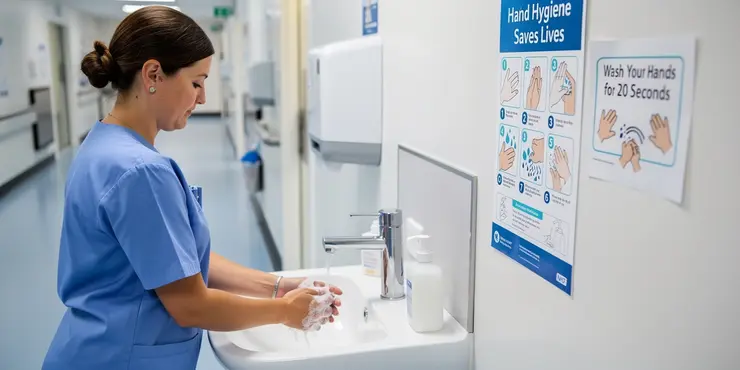
How can I prevent norovirus infection?
Relevance: 28%
-
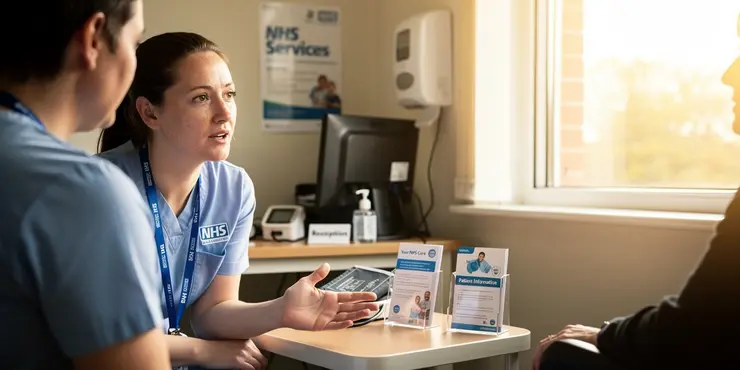
Can Marburg virus disease be prevented?
Relevance: 28%
-
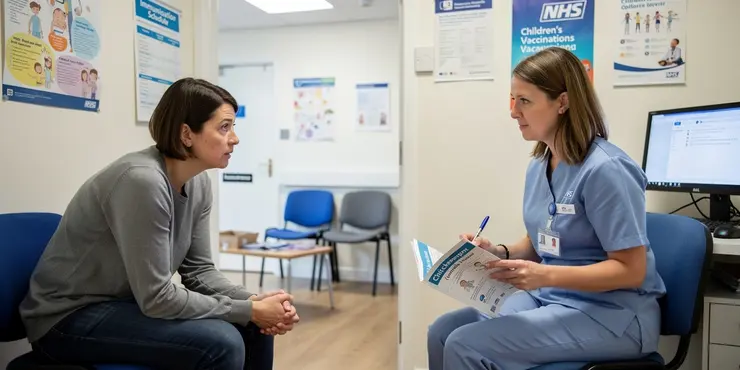
Can chickenpox be prevented?
Relevance: 28%
-

What diseases can be spread by blood transfusions?
Relevance: 28%
-
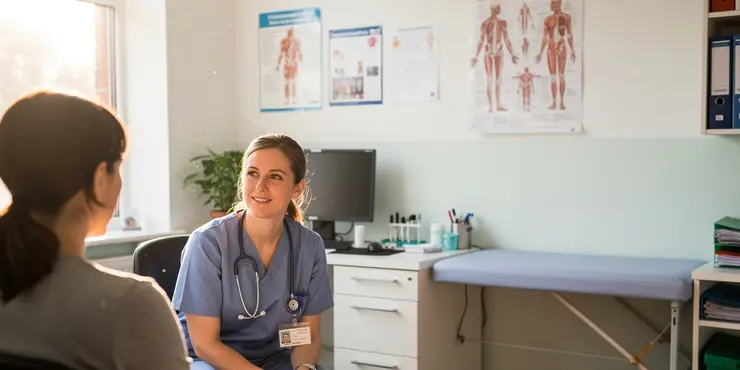
What diseases are spread by mosquitos in the UK in 2025?
Relevance: 28%
Understanding Impetigo
Impetigo is a common and highly contagious skin infection that predominantly affects children, although adults can also contract it. It is characterized by red sores that quickly rupture, ooze for a few days, and then form a yellowish-brown crust. The infection is mainly caused by two types of bacteria: Staphylococcus aureus and Streptococcus pyogenes.
Personal Hygiene Measures
Maintaining good personal hygiene is fundamental in preventing the spread of impetigo. Ensure that you and your children wash your hands regularly with soap and water, especially after touching the skin or any affected area. Keep your fingernails short and clean to minimize the risk of bacteria transmission. Avoid scratching the sores, as this can exacerbate the infection and increase the risk of spreading bacteria to other parts of the body or other people.
Preventing Transmission
To prevent the spread of impetigo, it is crucial to avoid close contact with infected individuals, as the bacteria can spread through direct skin-to-skin contact. Children with impetigo should be kept home from school or nursery until their sores have dried up or they have been undergoing antibiotic treatment for at least 48 hours. If you suspect you or your child has impetigo, seek medical advice promptly to commence treatment and reduce the risk of transmission.
Clothing and Laundry Practices
Clothing, towels, and bedding used by someone with impetigo should be washed separately and at a high temperature to kill any lingering bacteria. Avoid sharing personal items such as towels, razors, or makeup, as these can become contaminated and facilitate the spread of the infection. Regularly clean and disinfect surfaces and objects that may come into contact with the infected person.
Using Medications and Treatments
If diagnosed with impetigo, follow your healthcare provider's instructions regarding medication and care. Topical antibiotic creams or oral antibiotics are commonly prescribed to treat the infection and prevent its spread. Complete the full course of antibiotics even if symptoms improve, as this ensures the infection is fully eradicated and reduces the chance of resistance.
Monitoring and Follow-Up
Monitor the infected area for improvement, and contact a healthcare professional if the condition does not improve or worsens after a few days of treatment. Be vigilant for any signs of secondary infections or complications, which may require further medical attention. Educate family members about impetigo and its transmission to foster a collective effort in preventing its spread.
Conclusion
By taking proactive measures and maintaining vigilance, individuals and families can significantly reduce the transmission of impetigo. Adhering to recommended hygiene practices, managing contact with infected individuals, and following medical guidance play critical roles in combating this contagious condition.
Understanding Impetigo
Impetigo is a skin infection. It spreads easily, especially among children. Adults can get it too. It looks like red sores on the skin. The sores break open, leak some fluid, and then get a yellow-brown crust. This infection is from two kinds of germs called bacteria. They are called Staphylococcus aureus and Streptococcus pyogenes.
Personal Hygiene Measures
Good hygiene helps stop impetigo from spreading. Always wash your hands with soap and water. Do this after touching your skin or any sore. Keep your nails short and clean. This helps stop germs from spreading. Try not to scratch the sores. Scratching can make the infection worse and spread germs.
Preventing Transmission
To stop impetigo from spreading, don't have close contact with someone who has it. The bacteria can pass through skin contact. If a child has impetigo, keep them home from school or nursery. They should stay home until their sores are dry or they have taken antibiotics for at least 2 days. If you think you or your child has impetigo, see a doctor quickly. This helps start treatment early and stops the infection from spreading.
Clothing and Laundry Practices
If someone has impetigo, wash their clothes, towels, and bedding separately. Use hot water to kill the germs. Do not share personal items like towels, razors, or makeup. These can have germs and spread the infection. Clean surfaces and objects regularly if they are touched by the infected person.
Using Medications and Treatments
If a doctor says you have impetigo, follow their advice for medicine and care. They might give you a cream or pills to fight the infection. Take all the medicine, even if you feel better. This makes sure all the germs are gone and prevents resistance.
Monitoring and Follow-Up
Watch the infected area to see if it gets better. Call the doctor if it doesn't improve after a few days. Look out for other infections or problems. These might need more medical help. Teach your family about impetigo and how it spreads. Everyone can help stop the infection from spreading.
Conclusion
By taking action and being careful, families can stop impetigo from spreading. Good hygiene, careful contact, and following the doctor’s advice are key. Working together, we can fight against this infection.
Frequently Asked Questions
What is impetigo?
Impetigo is a highly contagious skin infection, commonly caused by Staphylococcus aureus or Streptococcus pyogenes bacteria.
How does impetigo spread?
Impetigo spreads through direct contact with the sores of an infected person or by touching items like towels, bedding, or clothing contaminated with the bacteria.
What are the signs and symptoms of impetigo?
Symptoms include red sores that quickly rupture, ooze for a few days and then form a yellowish-brown crust. They often appear around the nose and mouth.
How can I prevent the spread of impetigo at home?
To prevent spread, practice good hygiene, avoid sharing personal items, keep the infected area covered, and wash hands frequently.
Is it important to wash hands to prevent impetigo?
Yes, washing hands frequently with soap and water is crucial to prevent the spread of impetigo.
Should I cover impetigo sores?
Yes, covering impetigo sores with bandages can help prevent the spread to others.
Can impetigo spread through sharing towels?
Yes, impetigo can spread through shared towels, so each person should use their own towel.
How should I handle laundry if someone has impetigo?
Wash clothing, linens, and towels in hot water and dry on high heat to kill bacteria and prevent spreading impetigo.
Should children stay home from school if they have impetigo?
Yes, children should stay home from school until they have been treated for at least 24 hours and the sores are covered and healing.
Can impetigo spread through toys?
Yes, impetigo can spread through contaminated objects, so it's important to clean and disinfect toys frequently.
Should personal hygiene items be shared if someone has impetigo?
No, avoid sharing personal items like razors, makeup, or soap with someone who has impetigo.
What environmental cleaning steps can help prevent spread?
Regularly clean and disinfect surfaces, especially those frequently touched, like doorknobs and light switches.
Can impetigo be contracted from swimming pools?
Contracting impetigo from swimming pools is unlikely, but avoid swimming if you have open sores to prevent spreading bacteria.
How soon can someone with impetigo return to work?
Individuals can typically return to work 24-48 hours after beginning antibiotic treatment, as long as sores are healing and covered.
Is it important to complete the full course of antibiotics for impetigo?
Yes, completing the full course of prescribed antibiotics is important to ensure the infection is fully cleared and prevent resistance.
Are there any vaccines to prevent impetigo?
Currently, there are no vaccines available to prevent impetigo.
Can practicing good hygiene help prevent impetigo in children?
Yes, teaching children to wash their hands regularly and avoid touching sores can help prevent impetigo.
Should I consult a doctor if I suspect impetigo?
Yes, consulting a healthcare provider is important for proper diagnosis and treatment.
What should be done if impetigo symptoms do not improve after treatment?
If symptoms do not improve after a few days of treatment, contact your healthcare provider for further evaluation.
Can good nutrition help prevent impetigo?
While good nutrition supports a healthy immune system, it specifically does not prevent impetigo, but maintaining general health can be beneficial.
What is impetigo?
Impetigo is a skin infection. It makes red spots on the skin. The spots can be itchy or sore.
If you think you have impetigo, tell an adult you trust. They can help you see a doctor.
To feel better, remember to wash your hands often. Try not to touch or scratch the spots.
Using pictures can help you understand more about impetigo. Ask someone to show you pictures or videos. This can make it easier to learn.
Impetigo is a skin infection that spreads easily from one person to another. It is often caused by germs called Staphylococcus aureus or Streptococcus pyogenes.
How does impetigo spread?
Impetigo is a skin infection. It can spread easily.
Here is how it spreads:
- By touching the sores of someone who has it.
- By touching things like towels or toys that have the germs on them.
- By scratching or picking at the sores and then touching other parts of your skin.
Helpful tips:
- Wash your hands often with soap and water.
- Do not share towels or clothes with others.
- Keep cuts and scratches clean and covered.
Impetigo can spread when you touch the sores of someone who has it. It can also spread if you touch things like towels, bedding, or clothes that have the germs on them.
What are the signs of impetigo?
Impetigo is a skin infection. Here are some signs to look for:
- Red sores that pop easily
- Yellow or honey-colored crusts on the sores
- Itchy rash that spreads
- Sores around the mouth and nose
If you think you have impetigo, tell a parent or a grown-up.
Look out for red spots. These spots break open, leak for a few days, and then get a yellow-brown crust. You might see them near the nose and mouth.
How can I stop the spread of impetigo at home?
Impetigo is a skin infection. Here are some easy tips to stop it from spreading:
- Wash your hands often with soap and water.
- Keep the infected area clean and covered with a bandage.
- Do not share towels, clothes, or bedding.
- Trim your fingernails short to stop scratching.
- Wash clothes, towels, and bed sheets often.
If you need help, ask an adult or friend to remind you. You can also draw pictures as a reminder of these steps.
To stop germs from spreading: keep clean, don't share your things, cover any cuts, and wash your hands a lot.
Should you wash your hands to stop impetigo?
Yes, washing your hands helps stop impetigo. Impetigo is a skin infection that can spread. Here is how to wash your hands to help stop it:
- Use soap and water.
- Scrub your hands for 20 seconds.
- Rinse and dry your hands well.
Tools to help you:
- Use a timer or sing a short song like "Happy Birthday" twice to make sure you scrub for 20 seconds.
- Put up a reminder sign in the bathroom.
It is very important to wash your hands often with soap and water. This helps stop impetigo from spreading.
Should I cover impetigo sores?
Impetigo is a skin infection. It can make red sores on your skin. Should you cover them?
Yes, it is a good idea to cover the sores. Use a clean bandage. This can help keep the sores clean. It can stop the sores from spreading to other people and to other parts of your body.
If you have impetigo, wash your hands often. Do not touch the sores. Ask a grown-up to help you if you are not sure what to do.
You can use pictures or videos to help understand better. Always talk to a doctor or nurse if you need help.
Yes, putting bandages on impetigo sores can help stop it from spreading to other people.
Can impetigo spread if we use the same towels?
Yes, impetigo can spread if you share towels. Everyone should use their own towel.
What should I do with laundry if someone has impetigo?
Here are some easy tips:
- Wash clothes and bedding in hot water.
- Use laundry detergent.
- Dry items in a hot dryer.
- Keep clothes and bedding separate from others.
- Wash your hands after touching dirty laundry.
These steps help stop the spread of impetigo.
Wash clothes, sheets, and towels in hot water. Use the high heat setting on the dryer. This helps kill germs and stops impetigo from spreading.
Do kids need to stay home if they have impetigo?
If a child has impetigo, a skin infection, they should stay home. This helps stop it from spreading to other kids.
To help, try:
- Talking to a doctor
- Using medicine cream
- Keeping the infected area clean
Yes, children should stay home from school until they have been treated for at least 24 hours. The sores need to be covered and starting to heal.
Can you get impetigo from toys?
Impetigo is a skin infection.
Yes, you can get impetigo from toys.
If a toy has germs on it, and you touch it, the germs can get on your skin.
To stay safe, clean your toys often.
Use soap and water to wash your hands.
If you feel unsure, ask an adult for help.
Yes, impetigo can spread by sharing dirty things. It's important to clean toys often.
Can you share personal cleaning things if someone has impetigo?
Impetigo is a skin infection. It can spread if you share things.
Do not share:
- Towels
- Washcloths
- Soap
- Razors
Use your own things to stay safe.
If it's hard to understand, ask someone to explain or use pictures to help.
No, do not share things like razors, makeup, or soap with someone who has impetigo. It can spread germs.
How can we clean to stop germs from spreading?
Here are some easy ways to clean and keep germs away:
- Wipe surfaces: Clean things people touch a lot, like door handles and switches.
- Use soap and water: Scrub with soap and water, it helps get rid of germs.
- Use disinfectant: Use special cleaning sprays or wipes that kill germs.
- Wash hands: Wash your hands often with soap and water.
- Open windows: Let fresh air in to help move germs out.
Try using reminder notes or setting alarms to help remember when to clean.
Clean things that people touch a lot, like door handles and light switches. Use special cleaning stuff to make sure they are safe.
Can you get impetigo from swimming pools?
Impetigo is a skin infection. You might wonder if you can catch it from swimming pools.
Here’s the simple answer: It’s not likely. Impetigo spreads by close contact, like touching an infected person's skin. It doesn't spread easily in water.
If you have impetigo, ask a grown-up about when it's okay to swim. It’s important to keep clean and dry the infected areas.
Using picture books or simple videos can help you learn more about impetigo. Ask for help if you don't understand.
It is not likely to get impetigo from swimming pools. But if you have cuts or sores, don't swim. This helps stop germs from spreading.
When can someone with impetigo go back to work?
If you have impetigo, you should stay at home. Before going back to work, wait until the doctor says it is okay. Usually, this is when the sores get better, and you take medicine. Ask a doctor for more help. Schools or work may also have their own rules.
You can usually go back to work 1 to 2 days after starting your medicine. Make sure your sores are getting better and are covered up.
Do I need to finish all my medicine for impetigo?
Yes, it is important to take all the medicine your doctor gives you. This medicine is called antibiotics. It helps to make the skin better. Even if you feel good, take all the medicine. This stops the impetigo from coming back.
If you need help, you can ask someone you trust. It could be a family member, friend, or doctor. They can remind you to take your medicine every day. You can also use a chart or set an alarm to help you remember to take your medicine.
Yes, it is important to take all your medicine to make sure you get better and stop the germs from becoming strong against the medicine.
Can you get a vaccine to stop impetigo?
No, there is no vaccine to stop impetigo. Impetigo is a skin infection. If you think you have it, tell an adult or see a doctor. They can help you feel better.
To help protect yourself, wash your hands often with soap and water. Keep your skin clean.
If you have questions, you can ask a doctor or nurse. They can give you the right advice.
Right now, there are no shots or vaccines to stop impetigo from happening.
Can keeping clean stop children from getting impetigo?
Impetigo is a skin infection. It can give itchy sores. Here's how good hygiene can help:
- Wash hands: Always wash hands with soap and water.
- Keep nails short: Trim nails to stop scratching.
- Don't share personal items: Use your own towels and clothes.
- Clean cuts: Wash any cuts or scrapes well.
- Bath regularly: Take regular baths to keep skin clean.
Remember, staying clean helps keep germs away. Ask an adult for help if you need it.
Yes, you can teach children to wash their hands a lot and not to touch their sores. This can stop impetigo.
Do I need to see a doctor if I think I have impetigo?
If you think you have impetigo, you should talk to a doctor. A doctor can help you know for sure.
Impetigo is a skin infection that needs medicine to go away. The doctor can give you the right medicine.
If you are not sure, ask someone you trust to help you decide. You can also use picture books or videos to understand more about impetigo.
Yes, it is important to talk to a doctor or nurse to know what is wrong and how to get better.
What to do if impetigo doesn't get better after medicine?
If impetigo doesn’t go away after taking medicine, you can:
- See the doctor again.
- Ask if you need different medicine.
- Make sure you use the medicine as the doctor said.
You can ask someone you trust to help you talk with the doctor.
If you do not feel better after a few days of taking medicine, talk to your doctor. They can check what's wrong and help you more.
Can eating healthy stop impetigo?
Eating healthy food is good for your body and helps keep you strong. But eating healthy cannot stop impetigo. Staying healthy is still important.
Useful Links
This website offers general information and is not a substitute for professional advice.
Always seek guidance from qualified professionals.
If you have any medical concerns or need urgent help, contact a healthcare professional or emergency services immediately.
Some of this content was generated with AI assistance. We’ve done our best to keep it accurate, helpful, and human-friendly.
- Ergsy carfully checks the information in the videos we provide here.
- Videos shown by Youtube after a video has completed, have NOT been reviewed by ERGSY.
- To view, click the arrow in centre of video.
- Most of the videos you find here will have subtitles and/or closed captions available.
- You may need to turn these on, and choose your preferred language.
- Go to the video you'd like to watch.
- If closed captions (CC) are available, settings will be visible on the bottom right of the video player.
- To turn on Captions, click settings .
- To turn off Captions, click settings again.
More Items From Ergsy search
-

How can I prevent the spread of impetigo?
Relevance: 100%
-

Can impetigo spread to other parts of my body?
Relevance: 84%
-

Is impetigo contagious?
Relevance: 73%
-

Is there a vaccine for impetigo?
Relevance: 72%
-

Can impetigo become serious?
Relevance: 68%
-

Can adults get impetigo?
Relevance: 67%
-

Minor ailment scheme - Impetigo
Relevance: 67%
-

How is impetigo treated?
Relevance: 66%
-

How can I tell if I have impetigo?
Relevance: 66%
-

Is impetigo painful?
Relevance: 66%
-

Pharmacy First – Impetigo Service
Relevance: 65%
-

Can I get impetigo more than once?
Relevance: 63%
-

Are there any home remedies for impetigo?
Relevance: 62%
-

When should I seek medical help for impetigo?
Relevance: 61%
-

How long does it take for impetigo to heal?
Relevance: 59%
-

How can I prevent spreading my cold to others?
Relevance: 47%
-

What should I do if my child has impetigo?
Relevance: 42%
-
How can healthcare providers prevent the spread of flesh-eating bacteria in hospitals?
Relevance: 41%
-

How is measles spread?
Relevance: 40%
-

How is chickenpox spread?
Relevance: 39%
-

Is malaria spread by mosquitoes in the UK?
Relevance: 38%
-

How is norovirus spread?
Relevance: 38%
-

How is viral meningitis spread?
Relevance: 37%
-

Is there a risk of yellow fever being spread by mosquitoes in the UK?
Relevance: 34%
-

Is there a risk of global spread if measles cases rise in the UK?
Relevance: 33%
-

How does flesh-eating disease spread?
Relevance: 33%
-

Can animals spread scabies to humans?
Relevance: 33%
-

Can gonorrhoea be prevented?
Relevance: 32%
-

Why do some variants spread more easily?
Relevance: 31%
-

Can testicular cancer spread to other parts of the body?
Relevance: 30%
-

Can bowel cancer spread to other parts of the body?
Relevance: 30%
-

Can Zika virus be spread from person to person in the UK?
Relevance: 30%
-

Can meningitis be prevented?
Relevance: 29%
-

Can the bubonic plague be prevented?
Relevance: 28%
-

Can nettle rash spread from person to person?
Relevance: 28%
-

How can I prevent norovirus infection?
Relevance: 28%
-

Can Marburg virus disease be prevented?
Relevance: 28%
-

Can chickenpox be prevented?
Relevance: 28%
-

What diseases can be spread by blood transfusions?
Relevance: 28%
-

What diseases are spread by mosquitos in the UK in 2025?
Relevance: 28%


